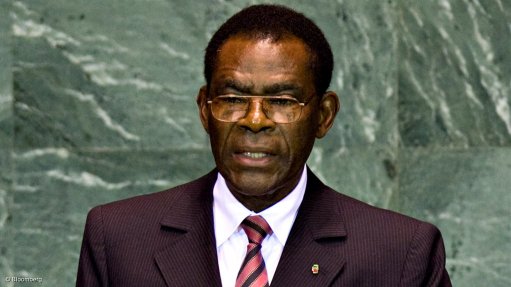Making responsible leadership a key pillar to economic transformation
This article has been supplied as a media statement and is not written by Creamer Media. It may be available only for a limited time on this website.
SA’s largest professional accounting body believes responsible leadership is crucial to delivering economic transformation – and SAICA members in various key positions are working hard to make it universal.
It might seem odd that “responsible leadership” is one of the five strategic pillars adopted by the South African Institute of Chartered Accountants . We would expect accountants to be more focused on figures and finance. The idea becomes less odd when you consider that chartered accountants occupy a significant number of leadership positions in both the public and private sector – a trait that SA shares with many other developing countries. Currently, more than 30% of the leadership of the JSE listed companies are Chartered Accountants South Africa. The new CEO of SAICA and former Auditor General Terence Nombembe also advocates responsible leadership.
In his term as AGSA, Nombembe stated time and again that responsible leadership is based on sound financial governance and accountability, chastising state institutions that failed to achieve this governance. In his 2013 report on municipal audit results, he said, “The lack of capacity in local government is affecting its ability to account for the public resources it has to administer on behalf of society ... “Although capacity building and the professionalisation of local government is an on-going, multi-year project, I am concerned that municipalities are not using all the opportunities available for skills development.” He is actively involved in promoting a number of these development opportunities, including SAICA’s Thuthuka initiative – which through business and government funding is supplying an increasing number of qualified, accountable African and Coloured CAs to both the public and private sectors.
It is interesting to note that, while SA scores below par on some international indicators, the World Economic Forum’s Global Competitiveness Report has ranked SA’s auditing and financial reporting standards and stock-exchange regulations the best in the world for four years running. PricewaterhouseCoopers CEO and Chairman of SAICA Board Suresh Kana attributes this to SAICA’s primary value: ‘Above all, we act with integrity.’ “Part of the reason we’re rated so highly by international standards is that SA and SAICA were deeply involved in setting those standards,” he says. “I believe if we were able to apply the same strict and successful attention to the improvement of governance to combat corruption, service delivery would improve, foreign investment would rise, and we could make a big difference to the lives of our poorest people.”
South Africa is a country rich in agricultural and mineral wealth, but saddled with complex legacy challenges. If we are going to put that wealth to work benefiting the whole population, state initiatives are not enough. Private-sector business acumen is required to translate those initiatives into sustainable solutions in education, employment, housing and healthcare. Public-private sector partnership is the only effective route to economic transformation – and that includes the private sector holding itself accountable to the same ethics and integrity that it expects from the state.
“Corruption goes both ways,” says Sandile Zungu, executive chairman of Zungu Investments Company (Pty) Ltd. “Whenever a state official takes a bribe, someone in the private sector is doing the bribing. There is also corruption in the private sector itself. Two recent scandals were the price-fixing in the bread industry, and the collusion among construction firms in World Cup stadium tenders. Yet the private sector is not as vocal when condemning these crimes as they are when assessing government’s record. We need brave leaders, in business and politics, who reject corruption as a moral fault; a stain on one’s character – and who are equally hard on private-sector transgressions, and demand the same penalties.”
For Sizwe Nxasana, FirstRand CEO and chairman of the Thuthuka Bursary Fund board of trustees, responsible leadership in business means pulling together with government to create more opportunities and more leaders. In July 2013, he became a trustee of the National Education Collaboration Framework Trust (NECT) – a government, business, labour and civil society project to improve the quality of education. “We need active citizens,” he says. “We want parents to get involved in knowing what goes on at school; to hold schools accountable. We need teachers who show up – not to sit in the staff room, but to teach. We want the youth to take responsibility for their own lives, but also ensure accountability from their schools. We need unions that can look after the interests of their members, while still playing a constructive role.”
Suresh Kana, like Nxasana, believes that responsible leaders need to focus on education, if their numbers are to multiply in both business and government. “We need a unity of purpose, as South Africans,” he says. “If we can recapture that enormous goodwill and openness to change we had 20 years ago, we can put the educational tools in place to ensure responsible governance within the next 20.”
Comments
Press Office
Announcements
What's On
Subscribe to improve your user experience...
Option 1 (equivalent of R125 a month):
Receive a weekly copy of Creamer Media's Engineering News & Mining Weekly magazine
(print copy for those in South Africa and e-magazine for those outside of South Africa)
Receive daily email newsletters
Access to full search results
Access archive of magazine back copies
Access to Projects in Progress
Access to ONE Research Report of your choice in PDF format
Option 2 (equivalent of R375 a month):
All benefits from Option 1
PLUS
Access to Creamer Media's Research Channel Africa for ALL Research Reports, in PDF format, on various industrial and mining sectors
including Electricity; Water; Energy Transition; Hydrogen; Roads, Rail and Ports; Coal; Gold; Platinum; Battery Metals; etc.
Already a subscriber?
Forgotten your password?
Receive weekly copy of Creamer Media's Engineering News & Mining Weekly magazine (print copy for those in South Africa and e-magazine for those outside of South Africa)
➕
Recieve daily email newsletters
➕
Access to full search results
➕
Access archive of magazine back copies
➕
Access to Projects in Progress
➕
Access to ONE Research Report of your choice in PDF format
RESEARCH CHANNEL AFRICA
R4500 (equivalent of R375 a month)
SUBSCRIBEAll benefits from Option 1
➕
Access to Creamer Media's Research Channel Africa for ALL Research Reports on various industrial and mining sectors, in PDF format, including on:
Electricity
➕
Water
➕
Energy Transition
➕
Hydrogen
➕
Roads, Rail and Ports
➕
Coal
➕
Gold
➕
Platinum
➕
Battery Metals
➕
etc.
Receive all benefits from Option 1 or Option 2 delivered to numerous people at your company
➕
Multiple User names and Passwords for simultaneous log-ins
➕
Intranet integration access to all in your organisation


















